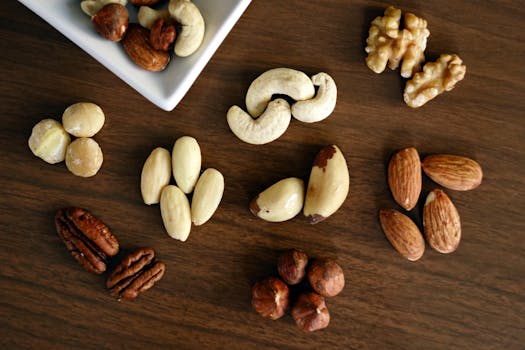Many pet owners love sharing a sip of their favorite drink with their furry friends, but not all human beverages are safe for dogs. If you've ever wondered, "Can my dog drink Schweppes Tonic Water?" you're not alone. One key ingredient in tonic water, quinine, raises serious concerns when it comes to canine health. Let's explore whether this fizzy drink is safe for your pup and what you need to know about quinine.
🍋 What Is Schweppes Tonic Water?
Schweppes Tonic Water is a popular carbonated drink that contains a mix of water, sugar, carbonation, and a bitter compound called quinine. Quinine is the ingredient responsible for tonic water's unique taste, and it’s derived from the bark of the cinchona tree. While tonic water is refreshing for humans, it’s a different story for dogs.
The combination of carbonation, added sugar, and quinine makes tonic water a questionable choice for pets. While one sip may not cause immediate harm, repeated exposure or consuming a large amount could pose risks to your dog's health.
🌿 What Is Quinine, and Why Is It Dangerous for Dogs?
Quinine is a naturally occurring substance that has been used for centuries to treat malaria in humans. However, it can be toxic to dogs even in small amounts. Quinine affects the central nervous system and can interfere with normal bodily functions in pets. Dogs process substances differently than humans, making them more susceptible to certain compounds, including quinine.
Here are some potential risks quinine poses to dogs:
- Neurological symptoms, such as tremors or seizures
- Gastrointestinal upset, including vomiting and diarrhea
- Cardiovascular issues, like irregular heartbeats
- Kidney or liver damage with prolonged exposure
Even if your dog doesn't show immediate symptoms after consuming tonic water, the long-term effects of quinine can still be harmful. Always err on the side of caution and keep tonic water out of reach.
🛑 Signs Your Dog Has Consumed Tonic Water
If your dog accidentally drinks tonic water, it’s important to watch for signs of toxicity. Symptoms can vary depending on the amount consumed and your dog's size, age, and overall health. Here are some common signs to look out for:
- Excessive drooling
- Vomiting or diarrhea
- Shaking or muscle tremors
- Restlessness or unusual behavior
- Difficulty walking or lack of coordination
- Rapid heartbeat or breathing changes
If your dog exhibits any of these symptoms, contact your veterinarian immediately. Even mild signs should not be ignored, as quinine toxicity can escalate quickly.
🥤 What Should Dogs Drink Instead?
Water is always the safest and healthiest option for your dog. Dogs have no need for sugary or carbonated beverages, and introducing these can upset their stomachs or lead to long-term health problems like obesity or diabetes. Ensure your dog has access to fresh, clean water at all times.
If you're looking for a special treat for your pup, consider these dog-safe alternatives:
- Plain, unsalted chicken or beef broth (without onion or garlic)
- Dog-safe herbal teas, such as chamomile or ginger (served cool and unsweetened)
- Specially formulated dog hydration drinks
These options can be a fun way to treat your dog without compromising their health.
🐕 Why Do Dogs Want to Taste Tonic Water?
Dogs are naturally curious creatures and often want to investigate whatever their humans are eating or drinking. The fizz of tonic water, combined with its unusual scent, may catch your dog's attention. However, just because your dog shows interest doesn’t mean it’s safe for them to consume.
It's essential to set boundaries and train your dog to avoid drinking from your glass or eating off your plate. Providing your dog with their own treats and drinks ensures they won’t feel left out while keeping them safe.
🩺 What to Do If Your Dog Drinks Tonic Water
If you catch your dog drinking tonic water, take these steps immediately:
- Remove the tonic water and make sure your dog can’t access it again.
- Check how much tonic water your dog consumed.
- Monitor your dog for any signs of quinine toxicity, such as vomiting, tremors, or restlessness.
- Contact your veterinarian and provide details about your dog’s size, age, and the amount of tonic water consumed.
In most cases, prompt action can prevent serious health issues. Your vet may recommend at-home care or ask you to bring your dog in for an examination.
FAQs
Can one sip of tonic water harm my dog?
One small sip is unlikely to cause severe harm, but it’s still not recommended. Even small amounts of quinine can upset your dog’s stomach or cause mild toxicity symptoms.
Are other carbonated drinks safe for dogs?
No. Carbonated drinks like soda or sparkling water often contain sugar, artificial sweeteners, or other ingredients that can be harmful to dogs. Stick to plain water instead.
What should I do if my dog shows symptoms of quinine poisoning?
Contact your veterinarian immediately. Provide as much information as possible about what your dog consumed and their symptoms.
Is diet tonic water safe for dogs?
No. While diet tonic water may have less sugar, it still contains quinine and other artificial additives that are unsafe for dogs.
Can I give my dog herbal drinks instead?
Some herbal teas, like chamomile or ginger, can be safe for dogs in moderation. Always consult your vet before introducing new drinks to your dog’s diet.
References
Book a $49 online vet consultation at https://www.dialavet.com for fast, expert advice.























